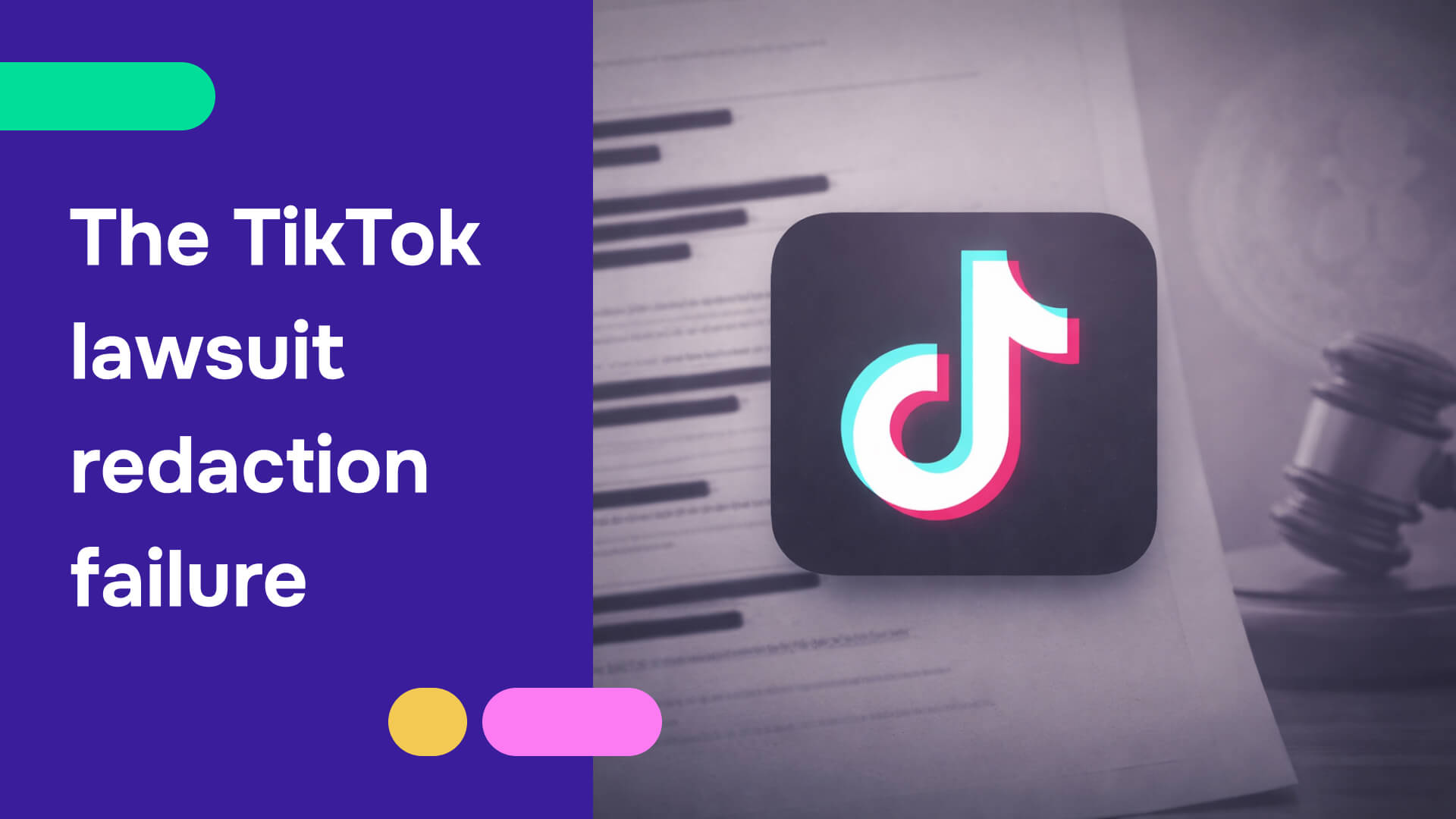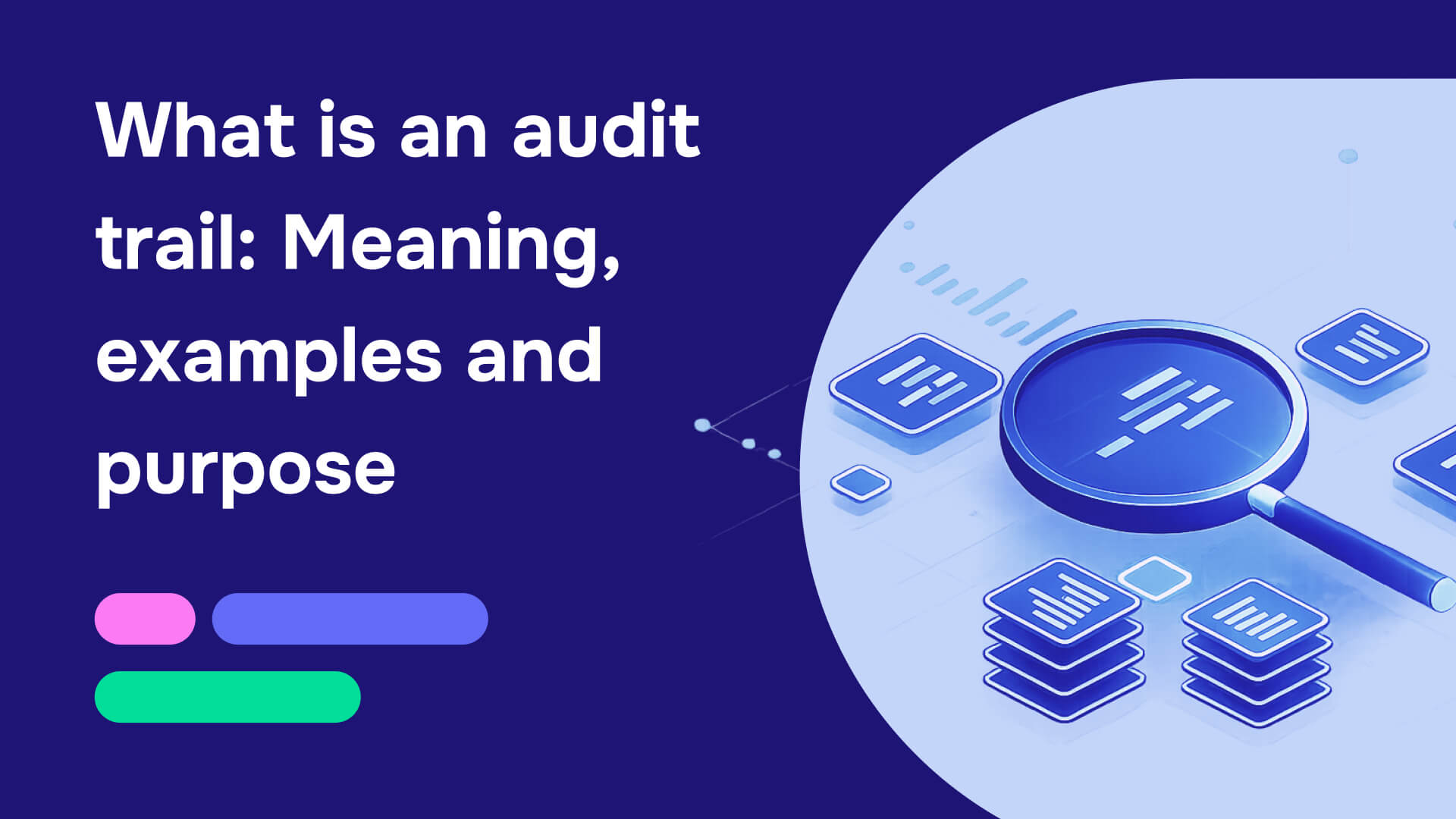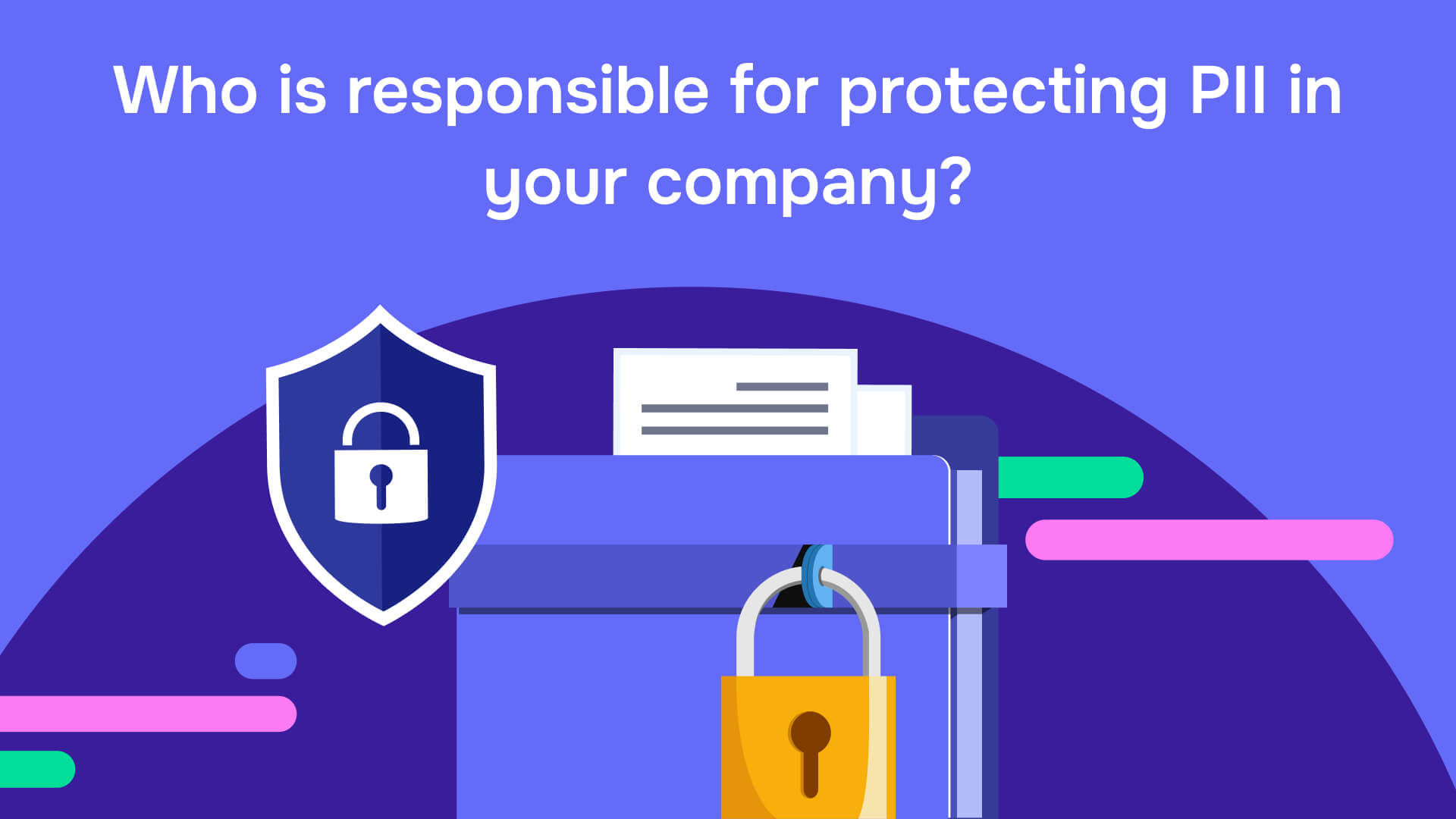Few concepts are as foundational to the legal profession as client privilege. It ensures that clients can share information openly and confidently with their attorneys, knowing those communications are protected from disclosure. Yet in the modern digital era, maintaining that privilege has become increasingly complex. Law firms handle vast volumes of sensitive information across emails, contracts, filings, and case management platforms. Every document exchanged, stored, or reviewed carries potential risk.
Manual safeguards no longer suffice. The velocity of legal work, combined with distributed teams, eDiscovery obligations, and client expectations, requires automation. Today, law firms are turning to AI-driven tools like Redactable to embed privilege protection into their workflows - automatically redacting sensitive data, enforcing compliance, and providing defensible audit trails.
This article explores how automation strengthens privilege protection, reduces risk, and allows law firms of all sizes - from global partnerships to boutique practices — to work faster and safer without compromising confidentiality.
The fragility of privilege in the digital age
Attorney–client privilege was once safeguarded by locked filing cabinets and verbal discretion. Today, it lives in PDFs, cloud drives, chat logs, and databases. While privilege is a legal right, it’s not immune to operational failure. A single misplaced document or overlooked identifier can waive protection entirely.
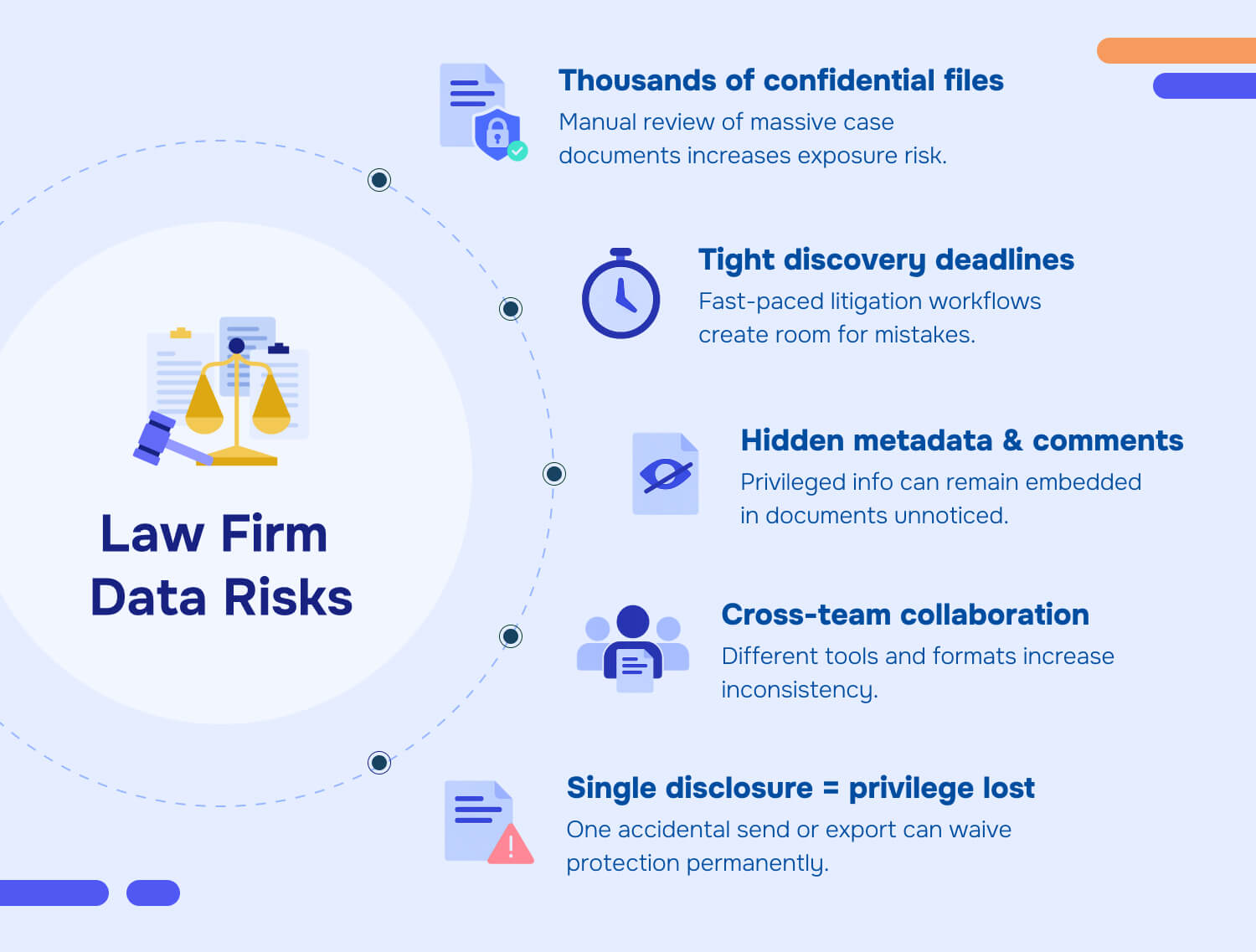
Modern legal workflows generate privilege risk in three ways:
- Volume: Firms handle thousands of privileged emails and documents per matter. Reviewing them manually for sensitive content is time‑intensive and error‑prone.
- Velocity: Rapid case turnaround and client expectations shorten review timelines, increasing the risk of accidental disclosure.
- Variation: Privileged information appears in diverse formats - footnotes, metadata, attachments, or embedded comments - not just the main document body.
When privilege breaches occur, the consequences are severe: waived protections, regulatory sanctions, lost clients, and reputational harm. Automation directly addresses these vulnerabilities by providing precision, consistency, and scalability.
Why manual privilege review falls short
Even the most diligent paralegal or associate can miss redaction opportunities when racing through hundreds of pages. Traditional manual review involves identifying privileged phrases, client names, or legal strategy notes — a process that is not only laborious but also prone to human error. The complexity multiplies when teams collaborate across multiple offices or use different document management systems.
Manual redaction also creates inconsistent outcomes. Some reviewers over‑redact, removing valuable context; others under‑redact, exposing sensitive material. Both outcomes slow down discovery and erode client trust. Automation solves this by applying consistent logic, powered by AI models trained to recognize context, legal terminology, and identifiers.
Automation as a shield for privilege
Automation transforms privilege protection from a reactive task into a proactive system. With solutions like Redactable, law firms can automate the detection and removal of privileged information across document workflows. This ensures every file shared with opposing counsel, regulators, or clients is sanitized by design.
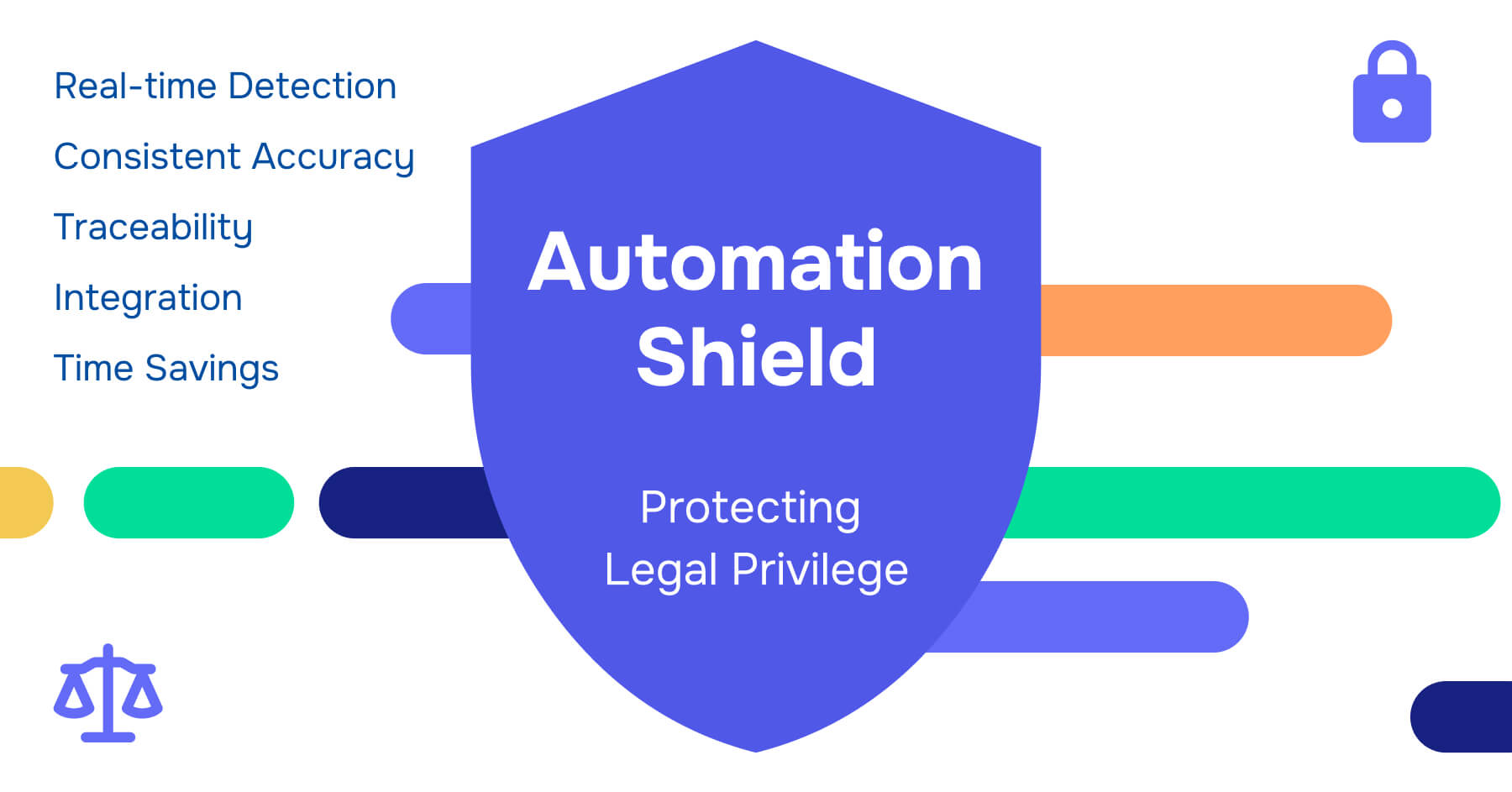
Key automation benefits include:
- Real‑time detection: AI models flag privileged content as soon as it’s uploaded or drafted, enabling immediate action.
- Consistent accuracy: Automation eliminates subjective interpretation, applying uniform privilege criteria firm‑wide.
- End‑to‑end traceability: Every redaction and privilege tag is logged automatically, providing defensible evidence for audits or disputes.
- Integration with legal systems: Tools like Redactable integrate directly with eDiscovery, DMS, and contract management systems, embedding privilege protection where work happens.
- Time savings: Automated redaction cuts document review times by up to 70%, freeing attorneys to focus on strategic legal work.
For enterprise law firms managing cross‑border cases, this automation is transformative. It ensures compliance with data privacy laws like GDPR and HIPAA while preserving privilege during international document transfers. For smaller firms, it levels the playing field — providing advanced protection without enterprise overhead.
Common privilege risks automation eliminates
- Accidental disclosure in discovery: Automated tools identify privileged content even in embedded metadata or comments, preventing unintentional release.
- Inconsistent redaction across teams: Centralized AI rules ensure every case follows identical privilege logic.
- Failure to remove hidden data: Redactable automatically scrubs hidden layers, tracked changes, and document properties — areas often missed by manual review.
- Privilege waiver through human error: Automation reduces reliance on subjective judgment, minimizing the risk of inadvertent waiver.
- Inefficient privilege logs: Automation can generate structured logs that document every redaction and rationale, simplifying regulatory compliance.
Large vs. mid‑size firms: tailored automation benefits
- Large firms: Global law firms face immense privilege complexity across jurisdictions. Automated redaction tools scale to handle millions of pages of discovery material and apply jurisdiction‑specific privilege rules. They also integrate seamlessly with enterprise DMS platforms, ensuring compliance across every office and matter.
- Mid‑Size and boutique firms: These firms often lack the manpower for exhaustive manual review. Automation provides them with enterprise‑grade precision and defensibility, without requiring dedicated IT infrastructure. Redactable’s cloud‑based model allows firms to automate privilege protection quickly and cost‑effectively.
Embedding privilege protection into legal workflows

- Document intake: Use AI to scan and tag incoming files for potential privilege markers such as attorney names, client identifiers, and strategy notes.
- Review & collaboration: Redactable’s collaborative interface allows teams to review flagged content together, applying standardized privilege rules.
- Redaction & export: Automated redaction removes privileged content from copies shared externally, while preserving original versions securely.
- Audit & reporting: Every action - who redacted what and when - is logged in an immutable audit trail for court defensibility.
- Continuous learning: Feedback from reviewers helps the system improve detection accuracy over time, adapting to each firm’s unique terminology.
By embedding these steps, law firms create a culture of privilege protection. Instead of relying on end‑stage redaction, they integrate automation early - ensuring privacy by design.
Technology in practice: Redactable for law firms
Redactable brings automation directly into the tools law firms already use. Its AI engine identifies 54 types of sensitive information, including client names, addresses, case references, and privileged communications. With role‑based access control, version tracking, and Search Exclusion features, firms can preserve necessary context while maintaining compliance.
Through API integrations, Redactable connects seamlessly with Relativity, iManage, and NetDocuments, embedding privilege protection into document workflows without disrupting productivity. Audit trails and permission-based sharing make every redaction defensible — a vital factor in high-stakes litigation.
Turning compliance into competitive edge
Firms that treat privilege protection as strategic infrastructure, not mere obligation, differentiate themselves in the marketplace. Clients are increasingly privacy-conscious, evaluating firms for legal expertise and for data governance maturity. Automated redaction not only helps to meet rising compliance standards, but also communicates professionalism, diligence, and modernity.
For enterprise clients, choosing a firm that uses automation to prevent privilege breaches is a risk management decision. For smaller firms, it’s a credibility booster — proving that even lean teams can operate with the same precision as multinational competitors. With Redactable, both can deliver faster, safer, and more compliant outcomes.
Implementation best practices
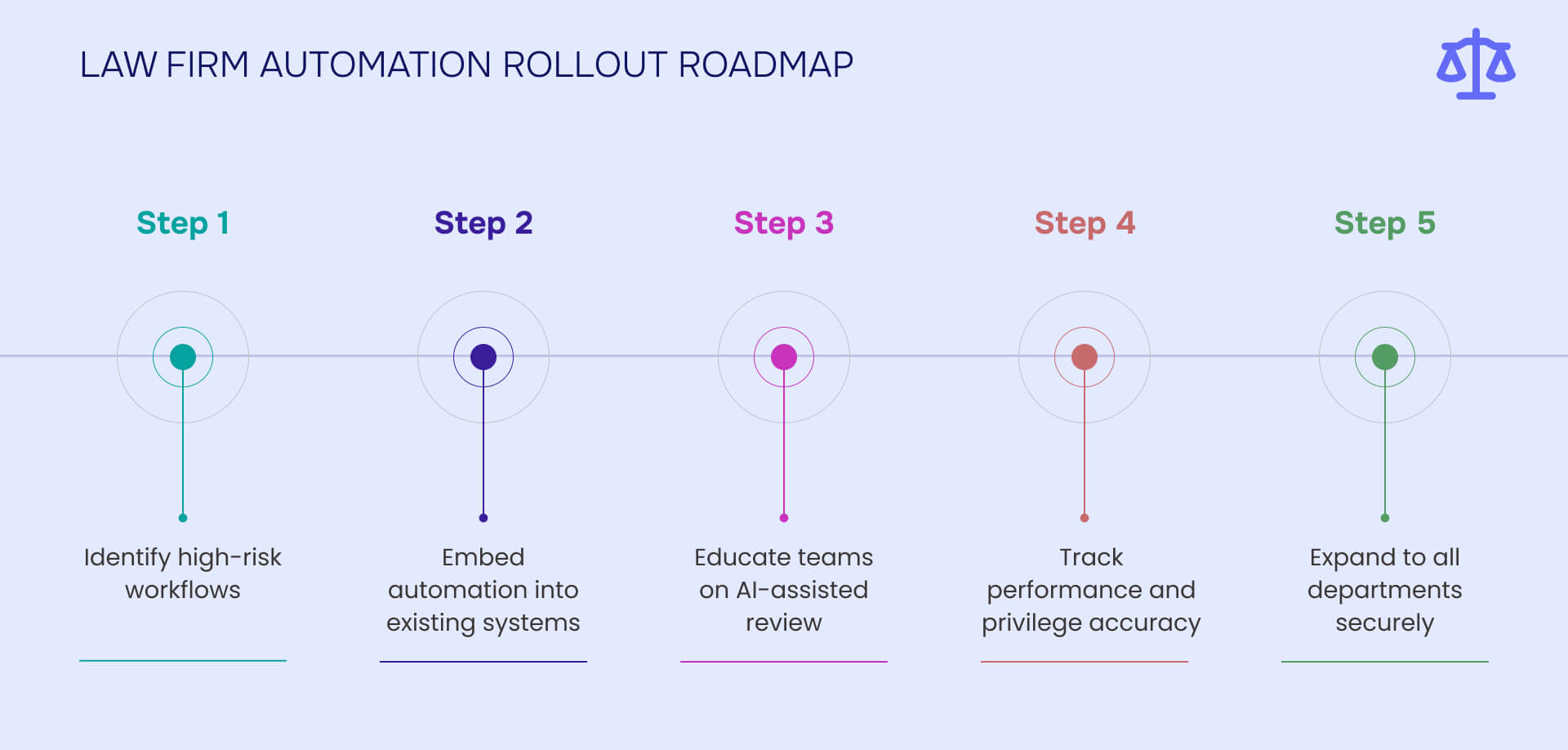
- Start with high‑risk workflows: Identify where privileged data is most exposed - discovery, M&A, or regulatory filings - and deploy automation there first.
- Integrate, don’t add: Embed automation into existing systems to avoid disruption.
- Train and trust: Educate attorneys on how AI redaction complements judgment, not replaces it.
- Monitor and audit: Use analytics to measure redaction accuracy, privilege hits, and process improvements.
- Scale gradually: Begin with one department, gather feedback, then roll out firm‑wide.
Conclusion
Protecting client privilege is both a legal mandate and a professional duty. As the volume and complexity of data grow, automation is no longer optional - it’s the only sustainable path to maintaining confidentiality at scale. By integrating automated redaction and privilege detection tools like Redactable, law firms can safeguard sensitive information, accelerate workflows, and reinforce client trust. In a legal landscape defined by speed, transparency, and accountability, automation isn’t just a tool - it’s the guardian of privilege itself.


